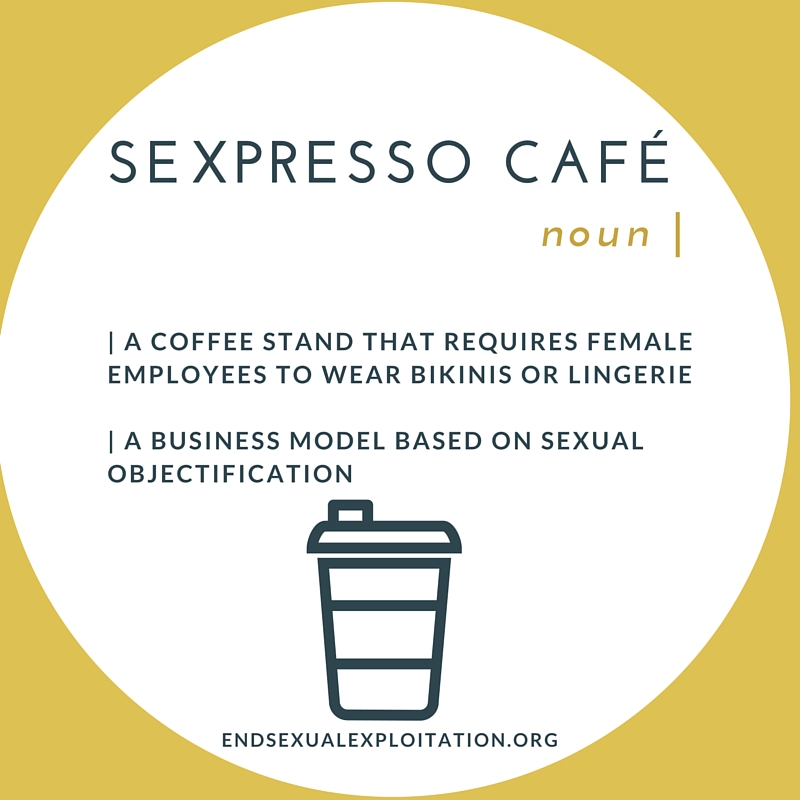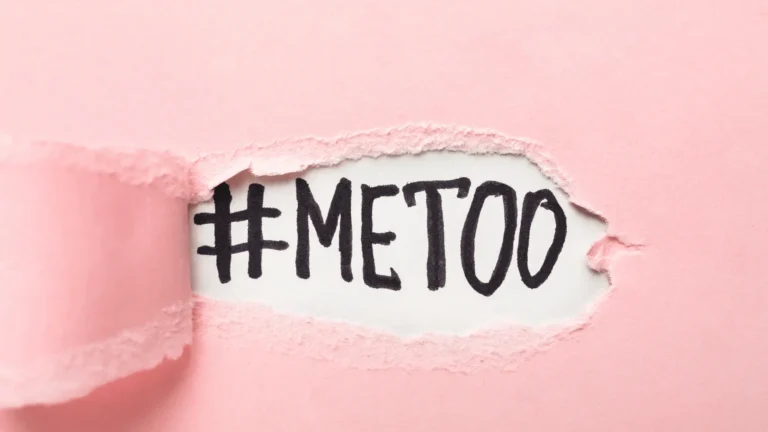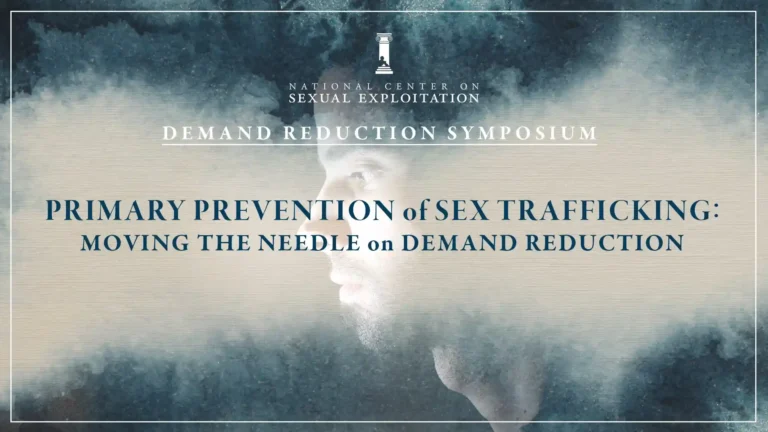The other day I was driving down a major thoroughfare about two miles from our house. As I passed an intersection where an old gas station had recently been torn down, I noticed a new building had gone up.
At first, it looked like the many drive-thru coffee spots which dot the corners of major intersections throughout the nation – Starbucks, Dutch Brothers, Dunkin’ Donuts, etc. But then I saw the name on this new building: “Bikini Beans.”
My first thought was that the new coffee spot would be doing a beach motif – perhaps some big umbrellas, beach-themed drinks, Beach Boys music etc. Perhaps it might have SpongeBob figures for kids. But then I thought, “Uh oh. I hope that does not mean what I think it means.”
Sadly, my second thought was right. It did mean what I thought it meant.
Shortly after driving by this new “establishment,” I came across an article about how “bikini baristas”, or “sexpresso cafés”, were the “new trend,” starting in Seattle and now making their way across the western United States. At these misogynistic coffee shops, barely clad young women are a ripe target for those wanting more than just a double latté to go.
The article used all the “code words” to justify the exploitation of these young women – words such as “female empowerment” and “body positivity.” For those of us who have worked to end sexual abuse and exploitation, we are well aware that those words are nothing but a cover-up for female objectification and sexual harassment.
The names of these businesses imply what they are selling. For instance, one in Billings, Montana, calls itself “Steady Grinding.” Nothing else needs to be said.

In many ways, these sexpresso cafés are nothing more than a physical manifestation of the image-based sexual abuse that occurs daily on website such as OnlyFans – it just occurs through a drive-thru window rather than a computer or smartphone screen. This is not female empowerment. The only “empowerment” taking place is the ability for the owners of these establishments and the men who frequent them to treat women as commodities for personal pleasure or profit.
And profit they do at the expense of these young women, who are either naively allowing themselves to be exploited or, in the worst-case scenario, potentially being forced by sex traffickers to work there. The Billings shop reports that their sales have quadrupled since enticing their customers with a little “extra” with their espressos – while sex trafficking continues to be a major problem in this mid-sized community.
Why would adopting a sexually exploitative business model be so profitable for coffee shop owners? The answer is simple: There is a demand.
As tragic as it is, the reality is that sexual exploitation sells. Far too many men are far too ready to ogle, objectify, and sexually use women – and they’re willing to pay to do so. As a result, business owners who recognize this demand, and the opportunity it offers to turn a profit, step up to provide the supply. Enter sexpresso cafés. (To learn more about the market dynamics of supply and demand in sexual exploitation, visit this webpage.)
As business owners capitalize on male sexual entitlement, a new class of women is formed that is no longer protected from sexual harassment in the workplace. Sexpresso cafés foster an environment where once a woman puts on her “uniform” she is deemed fair game by the men in the drive-thru to be treated in a way they would never treat a coworker in the office.
Baristas have described customers soliciting them for sex acts, masturbating in front of them at the drive-thru, spying on them with binoculars while they are changing, verbally harassing them, and more. In one very recent case, a customer attempted to abduct a barista – he grabbed her arm through the drive-thru window and tried to pull her into his car using a zip-tie.
To add insult to injury, baristas often receive little to no support from the business owners in dealing with this harassment and abuse. As one barista who worked at five different sexpresso cafés said:
“The owners just want you to make their sales goals. They don’t care how you do it or how you’re treated while doing it. They allow and sometimes encourage inappropriate behaviors in the stands. There was little value in handling sexual harassment. There were no plans in place for how to respond to it. Sexual harassment wasn’t even a discussion.”
The sad truth is, sexual harassment and sexual abuse by customers is often considered simply a part of the job for the baristas in these cafés.
In 2016, NCOSE campaigned against sexpresso cafés, placing them on the 2016 Dirty Dozen List. But clearly, these exploitative businesses will never go away completely, so long as there’s money to be made off of the male demand for sexual objectification. That’s why one of NCOSE’s core objectives is to combat sexual exploitation by reducing consumer-level demand.
Learn more about our work on demand here!
How Can You Help?
Help us push back against sexpresso cafés and the male demand for sexual exploitation by taking the following actions:
- Start a conversation with the men and/or boys in your life about the normalization of sexual objectification and exploitation in our culture, using these “sexpresso cafés” as an example.
- Patronize a coffee shop that supports anti-sex trafficking programs. Your daily coffee can finance the solution, rather than the problem!
- Sign up for Action Alert updates on how you can help us fight the demand for sexual exploitation.
As for me, the next time I drive by “Bikini Beans,” I will not be stopping for a cup of coffee. Instead, I will be working to support services that help women live free from sexual harassment and exploitation, and speaking up against sexual objectification among fellow men.



